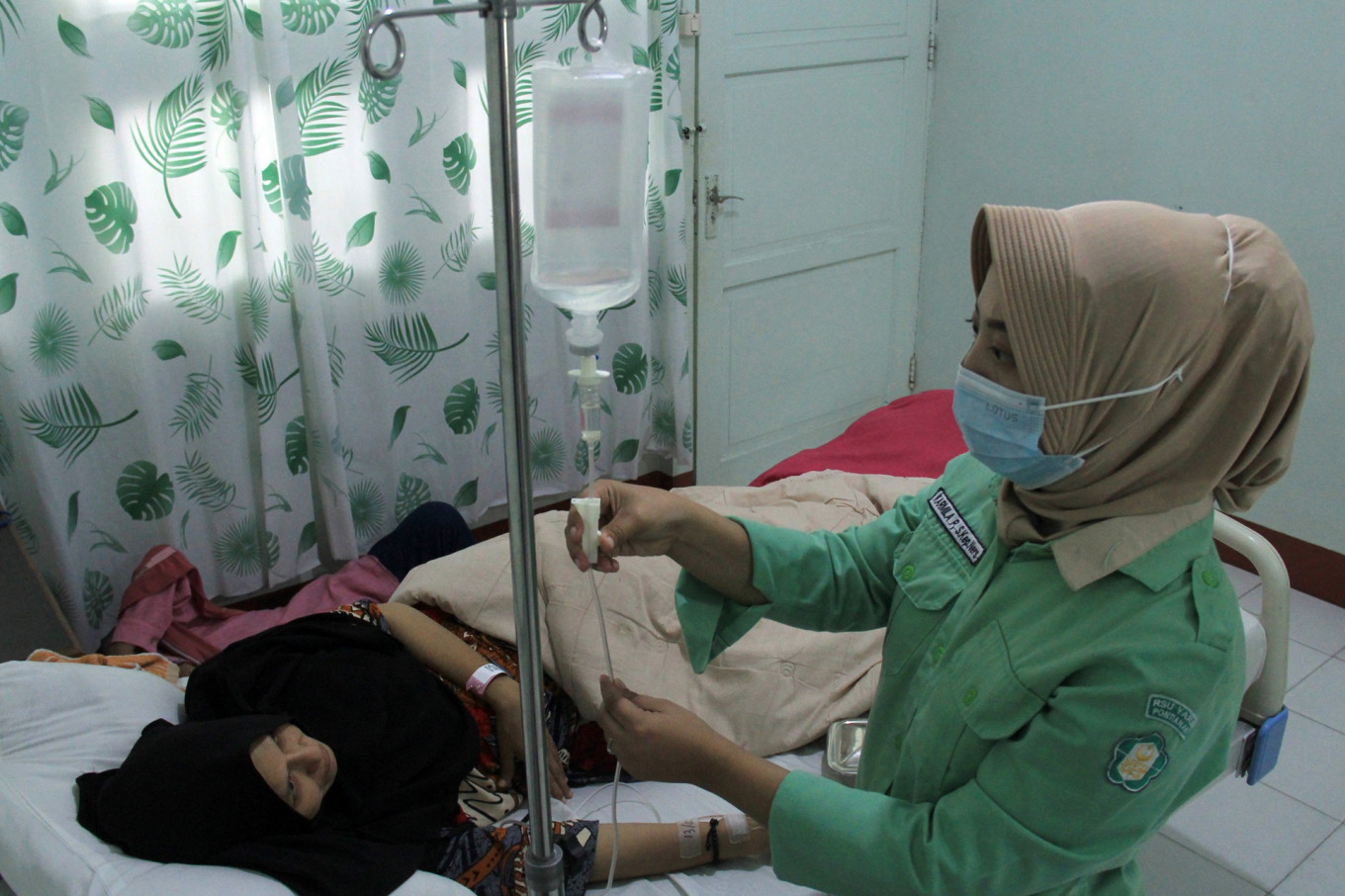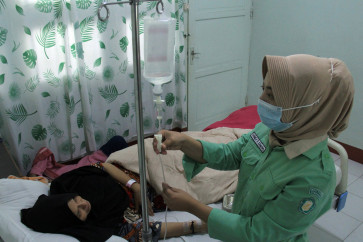Popular Reads
Top Results
Can't find what you're looking for?
View all search resultsPopular Reads
Top Results
Can't find what you're looking for?
View all search resultsSingle-class hospital care scheme will not affect premiums yet, BPJS says
Change text size
Gift Premium Articles
to Anyone
T
he Healthcare and Social Security Agency (BPJS Kesehatan) has said a recent regulation on standardized inpatient care for National Health Insurance (JKN) policyholders will not affect premiums for at least a year.
And while authorities say they aim to provide better and more equitable service with the new regulation, observers have raised concerns that creating a single class of hospital care could result in JKN patients waiting longer for treatment.
Earlier this week, the government issued a presidential decree that mandates the establishment of a standardized class of hospital care under the JKN scheme to replace the program’s three existing classes by June 30 of next year.
In the current three-tiered system, the hospital care class a patient is assigned is based on the premium they pay. The administration of President Joko “Jokowi” Widodo has been seeking to change the system since 2020.
The regulation has sparked concern among millions of JKN policyholders that the new system will add to the insurance fund’s deficits and force it to raise premiums.
For a large part of its 10 years of existence, BPJS Kesehatan has suffered from deficits, including last year when the agency recorded a Rp 7.9 trillion (US$494 million) deficit despite booking a record Rp 151.46 trillion in revenue.
BPJS Kesehatan spokesperson Rizky Anugrah said there would be no immediate changes to the state insurance premiums.



















